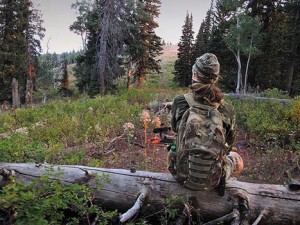The Ethics of Trophy Hunting
I’m a trophy hunter. On average I spend around 25 days per year beating myself up in the mountains just for a shot at a giant trophy buck. Most years I come home empty-handed, but what can I say; I just love hunting giant bucks! In this article we’ll explore the pros and cons of trophy hunting.
Trophy hunters sometimes get a bad rap, especially from non-hunters who sometimes refer to us as “head hunters.” Their assumption is that we hunt down and kill these majestic critters in cold blood, and then saw their head off and go home. This might be the case for a misguided few, but the hunters I know value the meat as much as the head.
This negative attitude isn’t just held by ignorant anti-hunters, but by other hunters as well. I was conversing with a fellow hunter once about the decline of big bucks over the years. Knowing that I was a trophy hunter he said, “Well, if people wouldn’t shoot all the big ones, there would be more around.” At first I thought he was kidding, but he wasn’t. I responded, “Isn’t that the point? To take the biggest buck you can?” I don’t remember his ignorant response.
A Case for Trophy Hunting
Aside from the large quantity of meat that trophy bucks provide, I don’t think there is anything more beautiful and majestic as a trophy mule deer buck with a massive rack. And since I only get to hunt one deer each year, why not make it something special?
But the best part of chasing trophy bucks with a bow is the extreme challenge it offers. Nothing tests a hunter’s skills like chasing trophy bucks on public land. The reward is so great that I won’t even think about pulling an arrow until I’ve verified a genuine superbuck. Each year my mantra is “One tag, one year, one superbuck.”
A while back I began pondering the ethics of trophy hunting. What were the pros and cons of trophy hunting? Is it more helpful or harmful to target trophies? As it turns out, trophy hunting is very beneficial, not only to deer herds in general, but to non-trophy hunters as well. Here’s what I discovered.
Trophy hunting does the following:
- Provides more meat to fill the freezer and feed the family. Trophy heads come with trophy bodies and that means lots of venison. A mature buck weighs twice as much as a yearling.
- Removes old, declining, and territorial bucks from the herd. This in turn allows more opportunities for young buck to reach maturity.
- 80% of bucks five years and older will die of old age, not hunter harvest. Since these bucks are essentially unhuntable for the average hunter, then the trophy hunter doesn’t compete directly with non-trophy hunters.
- Even veteran trophy hunters fail to harvest a trophy buck more often than not. Because trophy hunters aren’t shooting as many deer, it leaves more animals in the field which in turn provides greater opportunities for other hunters.
- Trophy hunters spend more days afield than the average hunter. This equates to a richer hunting experience, in my opinion. This is probably the best part of being a trophy hunter.
- Don’t be a “baby killer!” Being a trophy hunter means you’re not killing yearling or two -year-old bucks. Unlike older bucks, young bucks haven’t learned the art of evasion, so killing them isn’t really “fair chase” in my opinion. Several years ago there was a kill-anything mentality around our elk camp. On the last day of the season I had a young elk calf walk by at 20 yards. I drew my bow, but after looking at his cute, fuzzy face I just couldn’t bring myself to release my arrow. I got some razzing back at camp since “calves have better meat,” but shooting babies doesn’t seem fair to me.
- Let’s not forget the greatest benefit of trophy hunting: A big, beautiful rack displayed on the wall in magnificent glory to serve as a life-long reminder of an unforgettable hunt! Nature really makes the best art.
Conclusion
In the end I can’t think of a single disadvantage to trophy hunting, well, aside from frequent failure. But oft-found failure is easily overshadowed by the occasional harvest of true monster-buck.
Happy trophy hunting this year!


